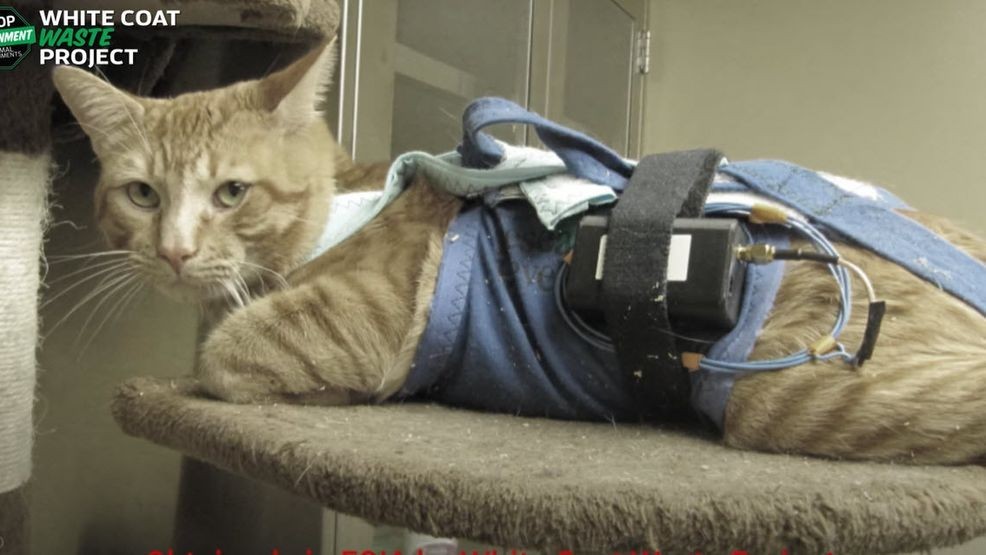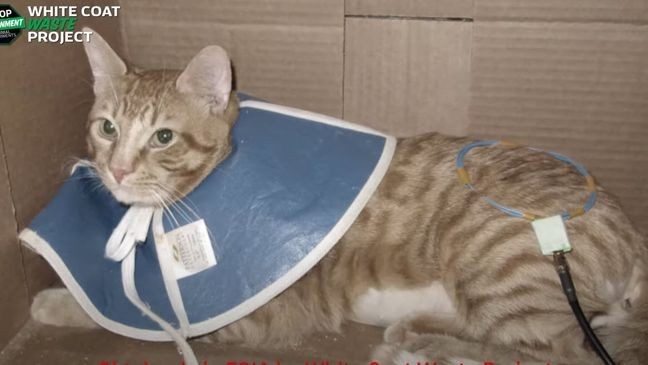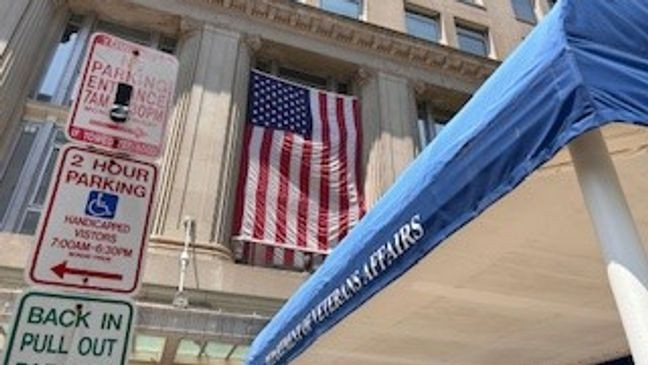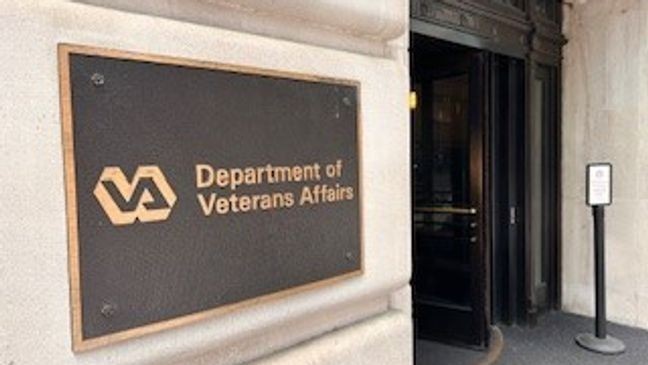Cat experiments stopped at US Department of Veterans Affairs
WASHINGTON (7News) — In a historic move, WJLA learned that scheduled cat experiments inside the U.S. Department of Veterans Affairs(VA) will no longer occur.
Research has been halted including implanting experimental medical devices in seven cats' backs and legs.
RELATED | Deadly kitten experiments funded by NIH at UC-Davis halted after White Coat inquiry
White Coat Waste Project, a D.C.-based tax payer's watchdog group, has been pushing to end these types of animal experiments for years.
"This is a monumental moment because this marks the complete end to dog and cat testing at the VA. This is the first federal agency that has completely eliminated dog and cat testing and now we are hoping we can get other agencies and get Congress to follow suit and do it elsewhere," says Justin Goodman with White Coat Waste Project.
The news comes after White Coat and WJLA in May exposed planned cat experiments in California at UC-Davis and funded by NIH. Those experiments have also been halted.
The new cat research at the VA was approved in 2022. Set to begin this year at the Louis Stokes Cleveland VA Medical Center in Cleveland, Ohio.
U.S. Representative Nicole Malliotakis of New York, co-chair of the Congressional Animal Protection Caucus, pushed to end the VA experiments.
I think taxpayers would be very upset to know their money is being used not on just unnecessary experiments but on inhumane ones that really torture these poor innocent animals," addedU.S. Representative Nicole Malliotakis (R-NY).
Last year, Congresswoman Dina Titus along with U.S. Representative Brian Mast (R-FL) wrote to the VA and discovered it was planning on spending $50,000 of its tax dollars on the cat experiments.
"Now the clock has moved on and there is new technology. There is bipartisan support. There's more public knowledge about the issue. So we are starting to see some progress made," saidU.S. Representative Dina Titus (D-NV).
In another historic move, Congress has enacted legislation to eliminate all tests on cats, dogs, and primates at the VA by 2026. Congressman Ken Calvert, a senior member of the House Appropriations Committee, helped make that happen and many in Congress support alternative testing including using microchips that mimic human organs.
There are a number of federal agencies that continue to do this so we need to make sure every agency uses these alternative methods to protect animals and as I said early to protect the taxpayer," says U.S. Representative Ken Calvert (R-CA).
As recently as April, the cat experiment was listed on the VA’s animal research website under current research. White Coat noticed the project was suddenly removed from the VA website and 7News started asking questions.
The VA told WJLA:
"There is no feline testing happening at this facility or any other. Historically, VA has conducted research using sensitive species only when absolutely necessary to care for those who have served in our military. Over the last 19 years, VA has proactively reduced the number of studies involving sensitive species – driving an over 90% decrease in these types of studies. Under Secretary McDonough’s leadership, this practice is now coming to an end. This year’s Consolidated Appropriations Act included a provision that eliminated testing on sensitive species at VA within two years, with limited exceptions, and VA is fully complying with the law."
Terrence Hayes
VA Press Secretary
"It's really a win-win for everyone from animals to Americans to scientists. Ending animal testing. Ending this wasteful animal testing," said Goodman.
This isn't a first for Goodman and White Coat. Two years ago, it helped end dog experiments for good here at the VA.



